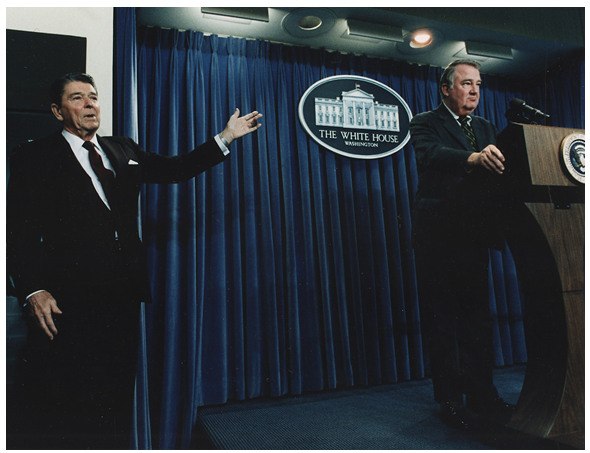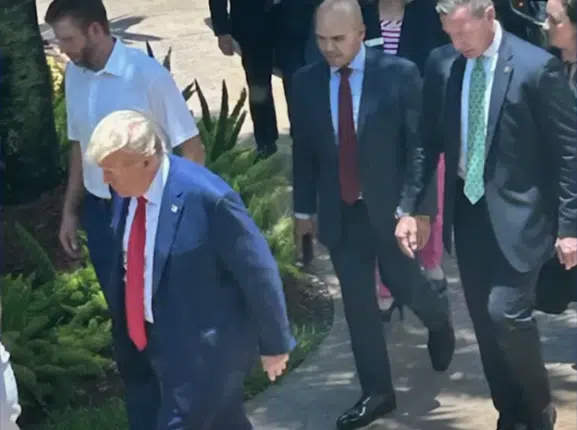
A key turning point came in 1985 when Meese addressed the American Bar Association (ABA) in Washington D.C. Here, he made the case for a jurisprudence that was rooted in the Constitution’s text and the original intent of the founding fathers. Since President Obama could potentially remake the U.S. Supreme Court if he wins re-election, it is worth reviewing some of Meese’s key observations.
“By seeking to judge policies in light of principles, rather than remold principles in light of policies, the Court could avoid the charge of incoherence and the charge of being either too conservative or too liberal,” Meese explained in his talk to the ABA. “A jurisprudence seriously aimed at the explication of original intention would produce defensible principles of government that would not be tainted by ideological predilection. This belief in a jurisprudence of original intention also reflects a deeply rooted commitment to the idea of democracy.”
A close confidante to Governor Reagan and later President Reagan, Meese has been a potent intellectual force within the conservative movement. On June 7th, he will be honored as one of the four 2012 Bradley Prize recipients during a ceremony at the John F. Kennedy Center for Performing Arts in Washington D.C.
“Ed Meese has been an invaluable public servant,” said Michael Grebe, president and chief executive officer of the Bradley Foundation. “His entire career has been devoted to upholding the rule of law and making the nation more secure.”
Meese’s ABA speech caused immediate reverberations.
In response, Supreme Court Justices William Brennan and John Paul Stevens offered up a defense of the “Living Constitution.” Justice Brennan accused originalists of practicing “arrogance cloaked as humility” during an address to Georgetown University. There was no reliable way modern judges could properly discern original meaning, he argued.
In subsequent talks delivered to the Federalist Society and at also at Tulane University, Meese continued to hammer home the idea that judges should not substitute their own political convictions in the place of fixed constitutional meanings.
Unfortunately, the role of the U.S. Supreme Court, rarely receives sufficient attention in U.S. presidential campaigns. By honoring Meese, the Lynde and Harry Bradley Foundation can help to focus attention on the progress originalist juridsprudence has made since the 1980s, and the long distance it must still travel.
The U.S. Supreme Court is one seat away from becoming either a constitutional court, or a hopelessly activist court for the next generation. President Obama has already selected two far left judges who will very likely vote to uphold ObamaCare; he should not be permitted to have a third.
Kevin Mooney is a contributing editor to Americans for Limited Government.







